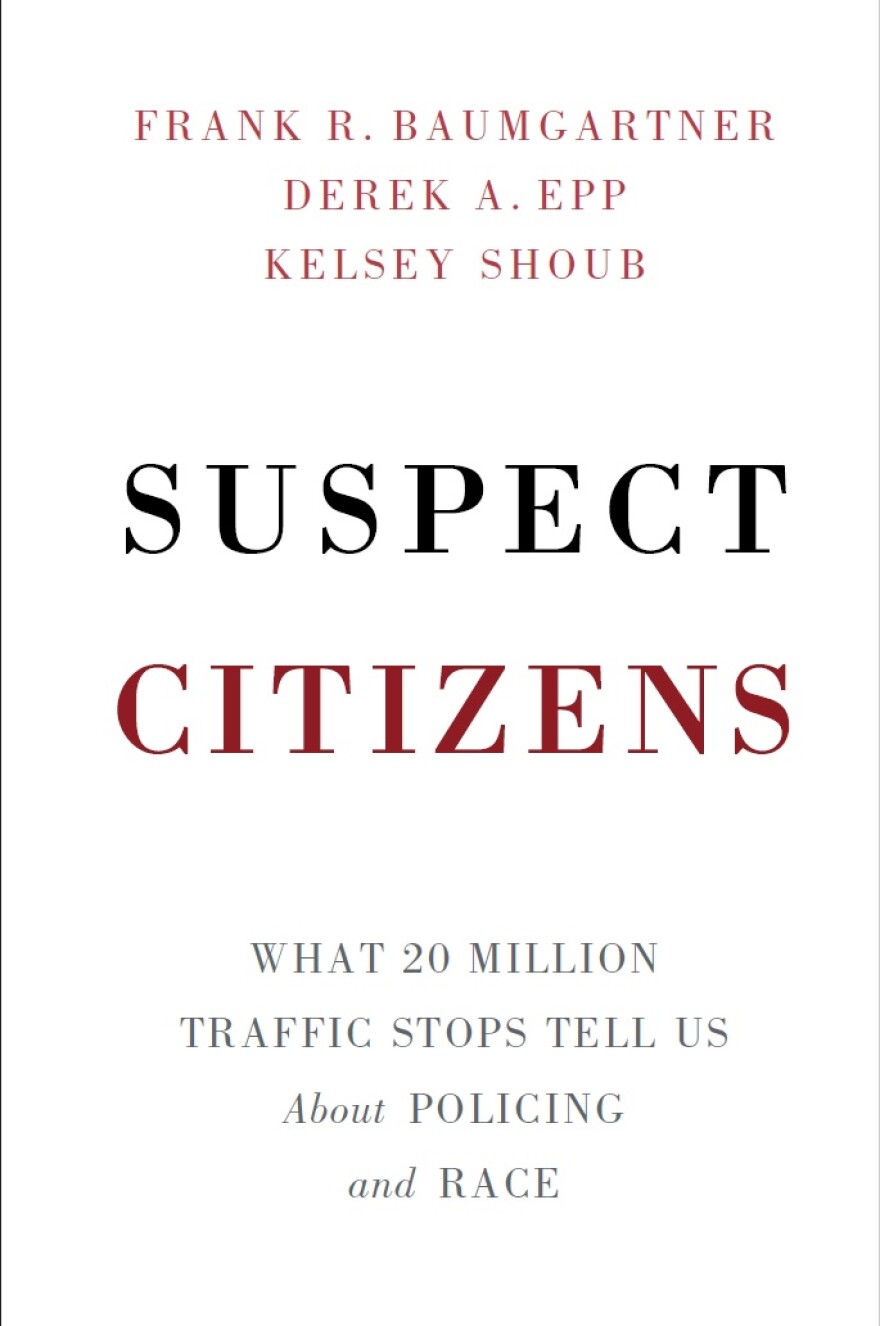20 million people are pulled over annually in traffic stops throughout the United States, according to The Stanford Open Policing Project. New data shows a disproportionate number of those motorists in North Carolina are black. The findings come from a comprehensive analysis of every traffic stop in the state from 2002 to 2016.
Frank Baumgartner is a professor of political science at UNC-Chapel Hill and co-author of “Suspect Citizens: What 20 Million Traffic Stops Tell Us About Policing and Race” (Cambridge University Press /2018). In his new book, Baumgartner proposes that traffic stops be used to keep roads safe instead of as a pretext to search someone’s car. Baumgartner joins host Frank Stasio to share his research and detail some solutions that are working for police departments in the Triangle.
Chief Chris Blue of the Chapel Hill Police Department and his staff were a resource for Baumgartner’s research. Blue joins the conversation to share the realities of traffic stops from an officer’s perspective and how his department has handled the issue of driving while black.
Once they are pulled over, the black driver is 115 percent more likely, more than double the odds, of being searched. - Frank Baumgartner
INTERVIEW HIGHLIGHTS
Frank Baumgartner on the racial disparity in traffic stops:
Whites in North Carolina represent about 69 percent of the population but only 60 percent of the traffic stops. Blacks are about 22 percent of the population and 30 percent of the stops. So there’s a significant increase in the likelihood that a black driver would be pulled over in the first place.
Baumgartner on what happens when a car is searched:
The searches don’t tend to lead to a lot of contraband [among black drivers] and when they do lead to contraband the average outcome is not that the person is arrested. And so, searches are slightly more likely to yield contraband with white drivers. A little bit less likely to yield contraband with black drivers. And significantly less with male Hispanic drivers.
Baumgartner on getting a warning instead of a ticket:
You may think it’s a good thing to be let off with no action or just a verbal warning … but if the police officer pulls you over and let’s you go with no action at all it raises the question of why did they pull you over in the first place … The best indicator that you were actually doing something wrong is that you get a ticket.
Male Hispanic drivers are particularly likely to be the object of what we call a fruitless search. -Frank Baumgartner
Baumgartner on the idea that traffic stops are a minor inconvenience:
I’ve been pulled over just a few times in my life and I’ve never had my car searched. And so the court has seen it kind of from the perspective of a white, middle class American, which is maybe every 10, every 15 years you get pulled over, the officer treats you with respect and the court has called it a momentary inconvenience. Compare that to Philando Castile … by the time he had been killed in a traffic stop he had been pulled over dozens of times.
Chief Chris Blue on the reform Chapel Hill Police Department implemented:
In June of 2015, we instituted a requirement that if an officer wants to do a consent search of a vehicle on a traffic stop, in other words he doesn’t have probable cause to search but wants to search anyway, he or she must produce a written form that advises the driver of their rights to refuse that search … the number of searches went down.
Chief Blue on not alienating the community:
When it comes to relationships with the people you serve – fruitless searches, that’s a really good term to use ... motorists are smart. They know that you’re asking because you can and the law affords us a great deal of latitude to do that. But the unfortunate consequence of that is this continued challenged relationship between the police department and the people we serve.
Chief Blue on the impact of Baumgartner’s data:
When his first analysis of traffic stop data in North Carolina was produced about six or seven years ago I think most police agencies said: That can’t be right because those findings are not consistent with who we think we are. We took an oath of office to serve everyone fairly and this says we’re not doing that.









